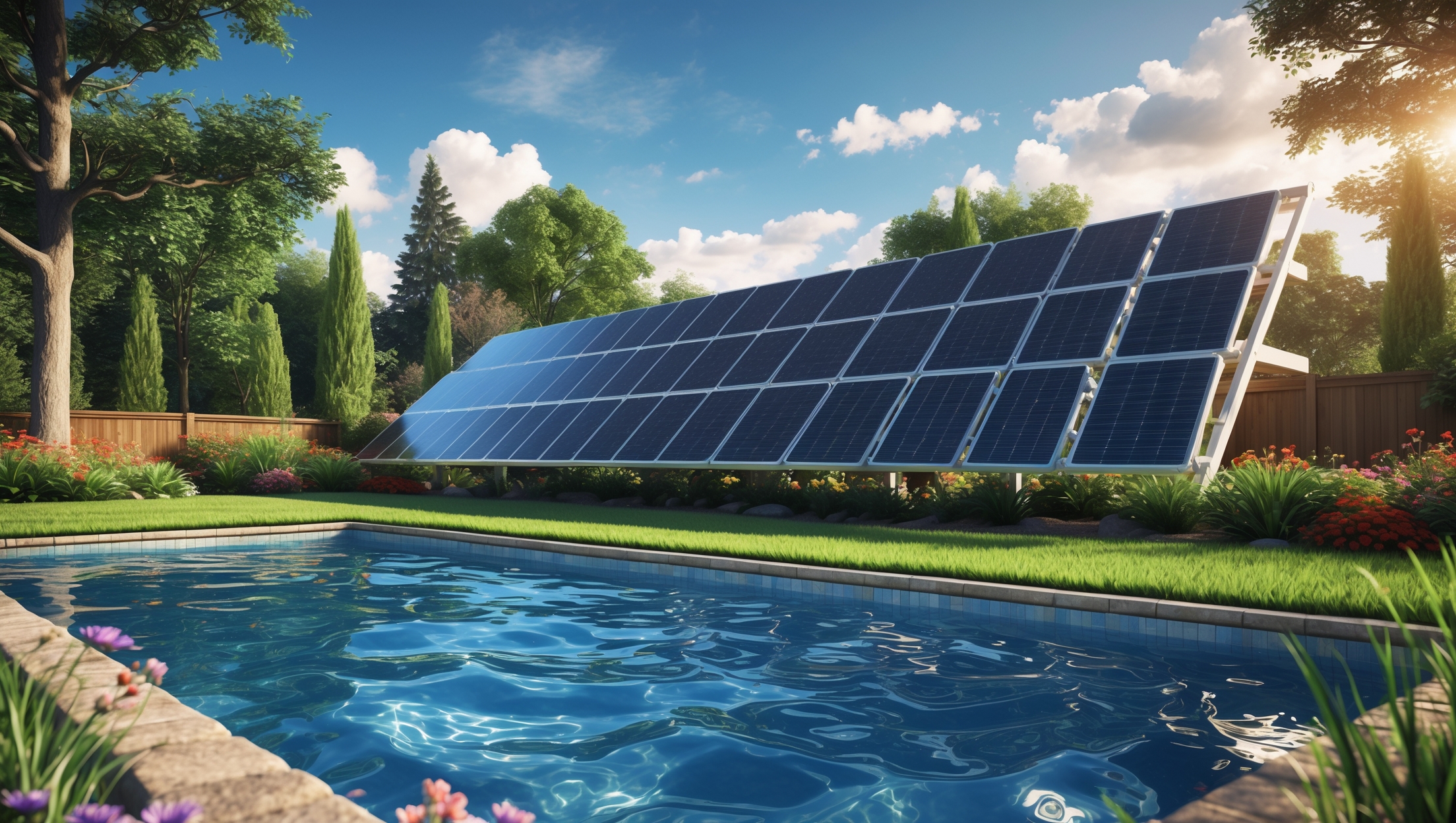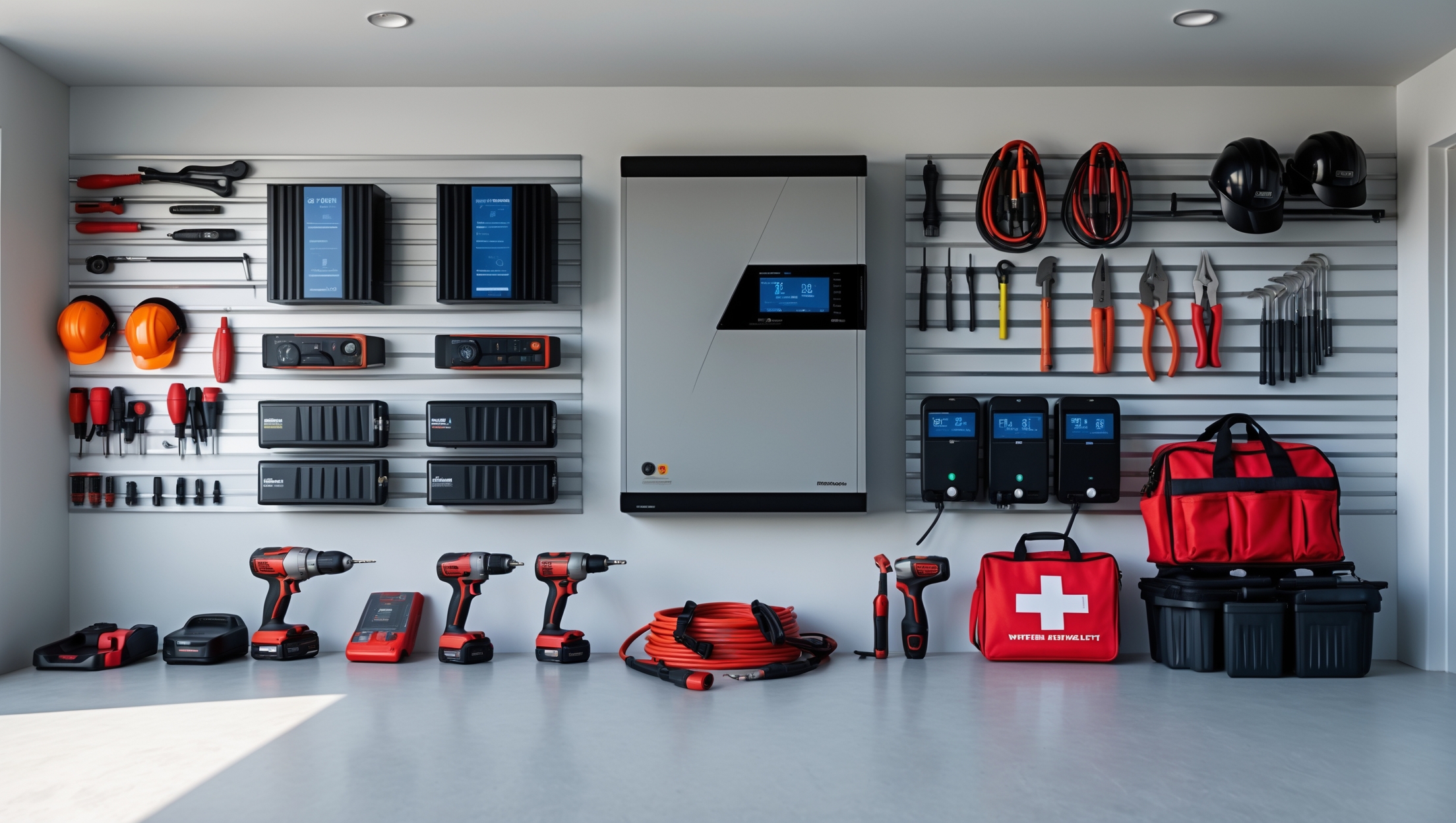Introduction: Why Compliance Matters in Solar Pool Heating
Solar pool heating systems are among the most effective ways to extend your swimming season and reduce the carbon footprint of your home. Harnessing the sun’s energy to warm your pool not only slashes energy bills but also represents a tangible commitment to sustainable living. However, before you can relax in a perfectly heated, eco-friendly pool, you must navigate a maze of local regulations, permits, and compliance requirements. Overlooking these steps can lead to costly fines, forced removal, or even legal disputes with neighbors or local authorities. For many homeowners, the regulatory landscape is daunting: requirements vary wildly between cities, counties, and homeowner associations. This comprehensive guide demystifies the compliance and permit process for residential solar pool heating systems. From understanding zoning codes to securing inspections and managing neighbors’ concerns, we’ll walk you through every practical step needed to ensure your solar pool heating project is legal, efficient, and future-proof. Whether you’re a hands-on DIYer or working with a professional installer, adopting a compliance-first mindset safeguards your investment and helps you become a role model in your sustainable community.
Understanding Solar Pool Heating Systems and Their Regulatory Impact
What Is a Solar Pool Heating System?
Solar pool heating systems use roof- or ground-mounted solar collectors to absorb sunlight and heat pool water as it circulates through the system. These systems typically consist of:
- Solar collectors (typically unglazed, polymer-based panels)
- Plumbing and valves to direct water flow
- Controller to manage temperature and flow
- Pumps (using existing or dedicated pool pumps)
Though similar in appearance to solar photovoltaic (PV) panels, solar thermal collectors are subject to different codes and standards.
Why Permits and Compliance Are Required
Solar pool heating systems alter plumbing, roof structure, and sometimes property boundaries. Local authorities require permits to:
- Ensure safe installation
- Verify compliance with building, electrical, and plumbing codes
- Protect neighbors’ rights and community aesthetics
- Maintain property values and environmental standards
Step 1: Researching Local Regulations and Zoning Codes
Start with Your City or County Building Department
Begin your compliance journey by contacting your local building or planning department. Ask specifically about:
- Solar pool heating system permits (not just general solar or pool permits)
- Relevant building, plumbing, or mechanical codes
- Any design guidelines for visible equipment (e.g., aesthetics, panel height)
Common Zoning Issues
Check if your property is in a zone that allows accessory solar structures. Key considerations:
- Setback requirements: Minimum distance from property lines for ground-mounted collectors
- Height restrictions: Maximum allowable height for roof- or rack-mounted collectors
- Historic districts: Stricter requirements for homes in historic preservation zones
- HOA or neighborhood covenants: Additional review and approval may be required
Document every guideline and save any relevant forms or checklists provided by officials.
Step 2: Determining Permit Types and Application Processes
Typical Permits Needed
- Building permit: For structural changes to the roof or new ground-mounted racks
- Plumbing permit: For modifications to the pool’s water circulation system
- Electrical permit: If new pumps, sensors, or controllers are being hard-wired
- Mechanical permit: Sometimes required for active solar thermal systems
Application Checklist
- Completed permit application forms
- Site plan showing collector location, setbacks, and orientation
- Roof plan or elevations (if roof-mounted)
- Plumbing diagrams and equipment specifications
- Structural calculations (if adding significant weight to roof)
- Proof of product certification or compliance with recognized standards (e.g., SRCC OG-100 for collectors)
- HOA or historic district approval letters (if applicable)
Many municipalities now offer online permitting; check if your city has a digital portal for solar pool heating projects.
Step 3: Navigating Inspections and Compliance Verification
Pre-Installation Inspections
Some jurisdictions require a pre-installation inspection, especially if major roof or plumbing work is anticipated. Inspectors may evaluate:
- Roof condition and structural integrity
- Plumbing system compatibility
- Potential shading or access issues
Progress and Final Inspections
Inspection points typically include:
- Proper mounting and anchoring of solar collectors
- Correct routing and insulation of plumbing lines
- Backflow prevention (to protect potable water supply)
- Electrical safety for any new wiring or controls
- Compliance with fire and safety codes (clearances, rooftop access)
- Leak and pressure tests for all connections
Schedule inspections as required and ensure someone knowledgeable is present to answer questions. Keep all inspection records for your files.
Step 4: Working with HOAs and Neighborhood Associations
Understanding Your Rights
Many states—including California, Florida, and Arizona—have Solar Rights Acts or similar laws that limit HOAs’ ability to unreasonably restrict solar installations. However, HOAs can still impose reasonable restrictions related to:
- Collector placement (to minimize visual impact)
- Color and material choices
- Installation methods
Get written approval before beginning work and retain correspondence for your records.
Tips for a Smooth HOA Approval Process
- Submit detailed plans and product brochures
- Offer renderings or photos of similar installations
- Address aesthetic concerns proactively (such as using color-matched hardware)
- Demonstrate compliance with all municipal codes
Step 5: Ensuring Long-Term Compliance and Documentation
Maintain a Compliance Binder
Create a dedicated folder or digital binder containing:
- All permit applications and approvals
- Inspection reports
- Product manuals and certifications
- HOA or neighborhood association correspondence
- Invoices and contractor licenses (if applicable)
These documents are essential for future home sales, insurance claims, or warranty issues.
Stay Up-to-Date with Code Changes
Building and energy codes evolve regularly. Subscribe to local government newsletters or alerts to stay informed about updates affecting solar pool heating systems. If you expand or modify your system, review whether new permits or inspections are required.
Special Considerations for DIY Installers
Owner-Builder Permitting
Many jurisdictions allow homeowners to act as their own contractors (owner-builders) for solar pool heating projects. This often requires signing declarations of responsibility and meeting additional inspection requirements. Make sure you understand:
- Scope limitations (some tasks may require licensed professionals)
- Liability and insurance implications
- Mandatory safety practices (working at heights, plumbing code adherence, etc.)
Common DIY Compliance Pitfalls
- Skipping permits to save time—risks fines and forced removal
- Incorrect plumbing connections leading to leaks or backflow violations
- Improper roof mounting compromising structural integrity
- Failure to pass final inspection, delaying use of the system
When in doubt, consult with a licensed plumber or solar contractor for plan review or code compliance checkups.
How to Expedite Your Permit Approval: Pro Tips
- Use pre-approved plans: Some cities offer pre-reviewed solar pool heating plansets that speed up approval.
- Hire certified installers: Contractors with NABCEP or equivalent credentials may have faster review times.
- Bundle permits: Apply for all needed permits (building, plumbing, electrical) at once for one-stop review.
- Attend permit counter hours: In-person visits can clarify ambiguities and resolve issues on the spot.
- Be responsive: Answer city or HOA follow-up requests promptly; delays often stem from missing info.
Case Examples: Unique Local Requirements
Example 1: Florida Coastal Community
Coastal zoning overlays required hurricane-rated mounting hardware and corrosion-resistant collectors. The city required a wind load analysis and limited ground-mounted systems to the backyard only.
Example 2: California Historic Neighborhood
Historic review board required collectors to be set below the roof ridge and not visible from the street. All plumbing had to be painted to match the roof.
Example 3: Mountain State Subdivision with HOA
The HOA required a detailed landscape plan to screen ground-mounted collectors and limited panel color to earth tones. The county mandated dual inspections: plumbing and fire safety.
Frequently Asked Questions
- Do I need a permit for a small solar pool heating system?—Usually yes, if it involves roof mounting or plumbing alterations.
- Can I install solar pool heating myself?—Often yes, but you must follow owner-builder rules and pass all inspections.
- Will my solar pool heater affect property taxes?—In some regions, solar improvements are tax-exempt; check local policies.
- How long does the permit process take?—From a few days (with pre-approved plans) to several weeks (with historic or HOA review).
Conclusion: Compliance as a Foundation for Sustainable Enjoyment
Complying with local regulations for your home solar pool heating system isn’t just a bureaucratic exercise—it’s a crucial safeguard for your investment, safety, and peace of mind. Navigating permits and compliance ensures your system is installed to code, operates efficiently, and avoids future legal or financial headaches. By proactively researching local requirements, preparing thorough applications, and keeping meticulous documentation, you demonstrate both environmental stewardship and responsible homeownership. A compliant solar pool heating system can become a showcase for sustainable living in your community, inspiring neighbors and enhancing property value. Remember, every jurisdiction is unique—never assume that what works in one town will be accepted in another. Seek guidance from local authorities, certified installers, and relevant associations to smooth your project’s path. With the right approach, you’ll not only enjoy warm, solar-heated swims but also contribute to a greener, more legally secure future for all residential solar technology. Take the time to do it right; your sustainable oasis—and your local environment—will thank you for it.





If I want to install a solar pool heating system myself, how do I figure out which local permits or inspections are required versus what a professional installer would handle? Does the process get more complicated for DIY projects?
If you’re installing a solar pool heating system yourself, you’ll need to check with your local building or permitting office directly to find out which permits and inspections are required—requirements can vary by location. Professional installers typically handle the permitting process for you, but as a DIYer, you’ll be responsible for submitting applications and scheduling inspections. The process can be more complex for DIY projects because you’ll need to ensure your installation meets all codes and regulations yourself.
You mentioned that ignoring compliance steps can lead to legal disputes with neighbors or authorities. Can you elaborate on what kinds of neighborhood or HOA concerns typically come up when installing solar pool heating panels?
Common neighborhood or HOA concerns about solar pool heating panels include worries about changes to the appearance of roofs, glare from the panels, and how visible they are from the street. Some HOAs have specific rules about where panels can be installed, their color, and even the type of mounting hardware used. Noise from pumps or alterations to shared property lines can also be concerns. It’s important to review your HOA guidelines and communicate your plans before installation to avoid disputes.
If I’m planning to hire a professional installer, do they usually handle all the permits and coordinate with local inspectors, or is there a part of the process I’ll still have to deal with myself as the homeowner?
Most professional solar pool heating installers take care of securing necessary permits and coordinating with local inspectors as part of their service. However, you may still need to provide certain documents or signatures, and be available for inspector visits if required. It’s a good idea to confirm these details with your chosen installer before work begins to avoid surprises.